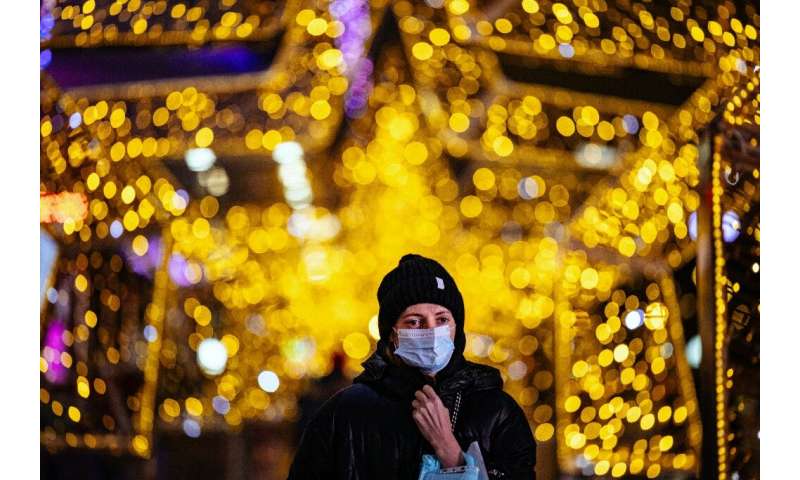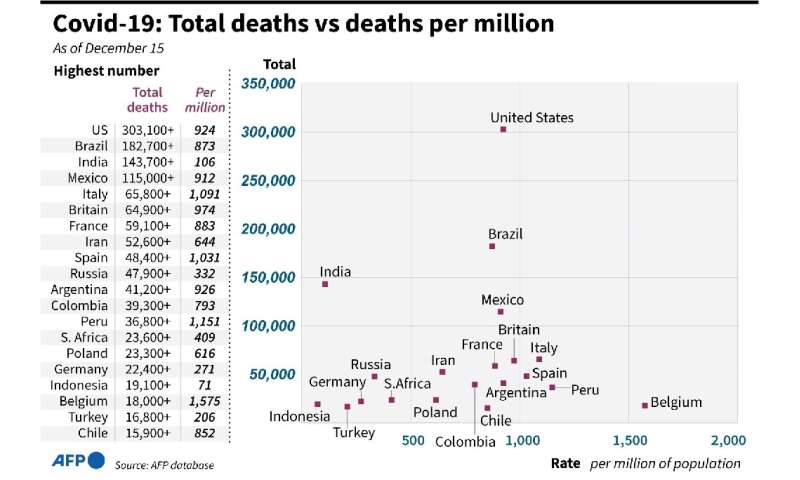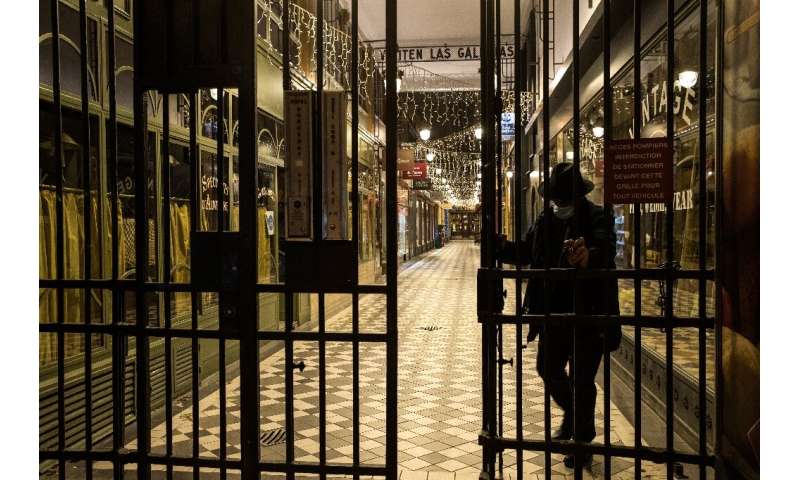
Several European countries tightened restrictions on Wednesday, as Germany set a record for daily deaths and the United States broke its own daily high for infection numbers.
The tougher measures came as EU countries agreed to rollout vaccinations on the same day.
“To get to the end of the pandemic, we will need up to 70 percent of the population vaccinated,” European Commission chief Ursula von der Leyen told MEPs.
Pressure has been mounting on the bloc since Britain and the United States both started their programmes, using a vaccine developed in the EU by Pfizer and BioNTech.
The World Health Organization’s European wing on Wednesday warned of a resurgence of the virus on the continent early next year, urging special precautions over the holiday season.
“It may feel awkward to wear masks and practise physical distancing when around friends and family, but doing so contributes significantly to ensuring that everyone remains safe and healthy,” the health agency said.
Pressure for vaccine approval
Germany, which dealt with its first wave relatively smoothly, closed non-essential shops and schools on Wednesday as its daily death toll soared to 952.
The country has struggled to contain a surge in recent months and has joined calls for the European Union’s health regulator to approve the Pfizer-BioNTech vaccine “before Christmas”.

China is also looking to stock up on the Pfizer vaccine with one company agreeing to buy 100 million doses subject to local approval—the country is mixing its vaccination strategy between locally developed drugs and imported ones.
Britain’s government said on Wednesday it had delivered the first jabs to 137,000 people, but high infection numbers still forced London to join large parts of England under tough restrictions on Wednesday.
Pubs, bars, restaurants and other hospitality sites will close, as will theatres and other entertainment venues.
“The hospitality business needs this week, and it’s devastating. It is devastatingly awful,” said Lesley Lewis, owner of The French House, a London pub.
“But if this is what it takes to save lives, that’s what we have to do.”
Denmark, France, Turkey and the Netherlands have all tightened their coronavirus restrictions and Spain’s prime minister expressed alarm at rising infection numbers there.
New US measures
Hopes for an end to the pandemic have been boosted by positive assessments of the Moderna COVID-19 vaccine.

The US Food and Drug Administration on Tuesday issued an upbeat briefing about Moderna ahead of a meeting of experts on whether to grant it emergency approval.
The United States has already started using the Pfizer-BioNTech vaccine and on Tuesday the FDA also approved the country’s first rapid at-home test for COVID-19.
The United States remains the hardest-hit nation, setting a record for new daily infections on Tuesday with more than 248,000 cases.
The Washington National Cathedral rang its bells 300 times Tuesday in memory of the more than 300,000 people who have lost their lives to coronavirus.
In California, officials ordered 5,000 extra body bags as Los Angeles was left with fewer than 100 available intensive care beds for a county of 10 million people.
“I don’t want… to scare folks,” said Governor Gavin Newsom. “But this is a deadly disease, and we need to be mindful of where we are.”
President-elect Joe Biden has said he will be vaccinated in public.

Poorer nations left behind
Worldwide, more than 73.4 million infections and over 1.6 million deaths have been recorded so far.
But with wealthy nations reserving more than half of next year’s potential doses, there are fears the poorer parts of the world will be left behind.
Even if the drug makers all produce effective, safe vaccines and meet their maximum global manufacturing targets, a study published Wednesday by Johns Hopkins University warned that “at least a fifth of the world’s population would not have access” until 2022.
Source: Read Full Article